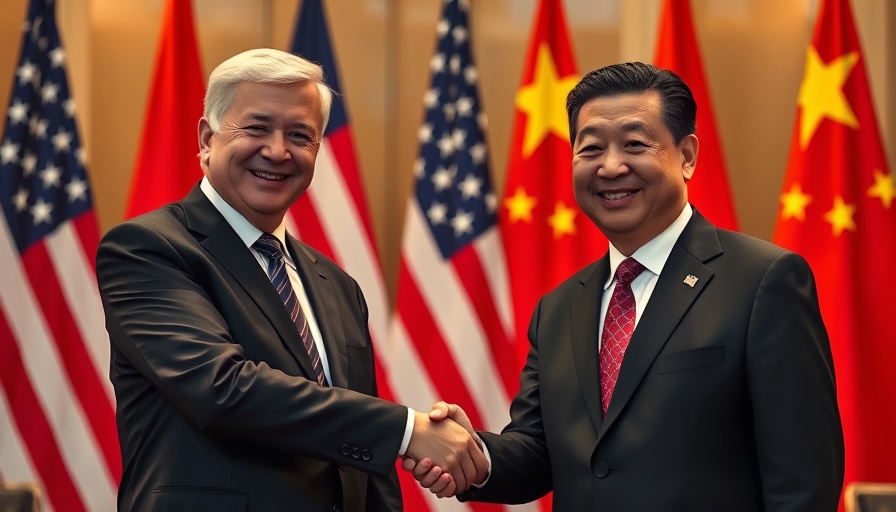
U.S.-China Trade Talks: A Step Towards Economic Stability
In a pivotal meeting held in London on June 9, 2025, U.S. Treasury Secretary Scott Bessent and Chinese Vice Premier He Lifeng concluded two days of negotiations aimed at addressing longstanding trade disputes. The focus of these discussions was on rare earth metals, crucial components in advanced technology and green energy, alongside vital tech export controls.
Understanding the Rare Earth Metals Dilemma
Rare earth metals are essential to various high-tech applications from electric vehicles to smartphones. With China currently holding a dominant position in this market, the negotiations held significant implications for global supply chains. Both nations recognized that working towards a mutual framework could mitigate the risks of supply chain disruptions, an issue that has plagued businesses and industries worldwide.
Future Predictions: Economic Opportunities Ahead
This framework offers a potential pathway for enhanced collaboration between the two largest economies, benefiting sectors like the Bay Area startups focusing on sustainable technologies and innovation. As trade tensions ease, we might expect a boost in venture capital flow, particularly towards green business initiatives that prioritize sustainability. This could enhance opportunities for local startups seeking funding in the evolving tech landscape.
Counterarguments: Risks and Challenges
However, the path to smoother trade relations is fraught with challenges. Skeptics highlight the complex political landscape, suggesting that achieving lasting agreements may still be challenging. The uncertain future of international trade regulations could continue to affect the momentum of economic recovery and business growth strategies. Business professionals must remain vigilant about market trends and the potential for further regulatory changes that could impact their operations.
Decisions Businesses Can Make with This Information
For professionals in the tech industry, this agreement signals an urgent need to adapt and innovate amidst shifting supply chains. Businesses should consider diversifying their sourcing strategies to reduce dependency on single markets, such as China. Moreover, embracing sustainability can align organizations with a growing consumer preference for environmentally-conscious products, creating competitive advantages in turbulent times.
Conclusion: The Importance of Staying Informed
As discussions surrounding trade regulations evolve, it is crucial for business professionals to stay informed about international relations and their impacts on industries. Engaging with local business news and global economic trends will empower professionals to make data-driven decisions, shaping resilient strategies and securing their market position.
 Add Row
Add Row  Add
Add 



Write A Comment